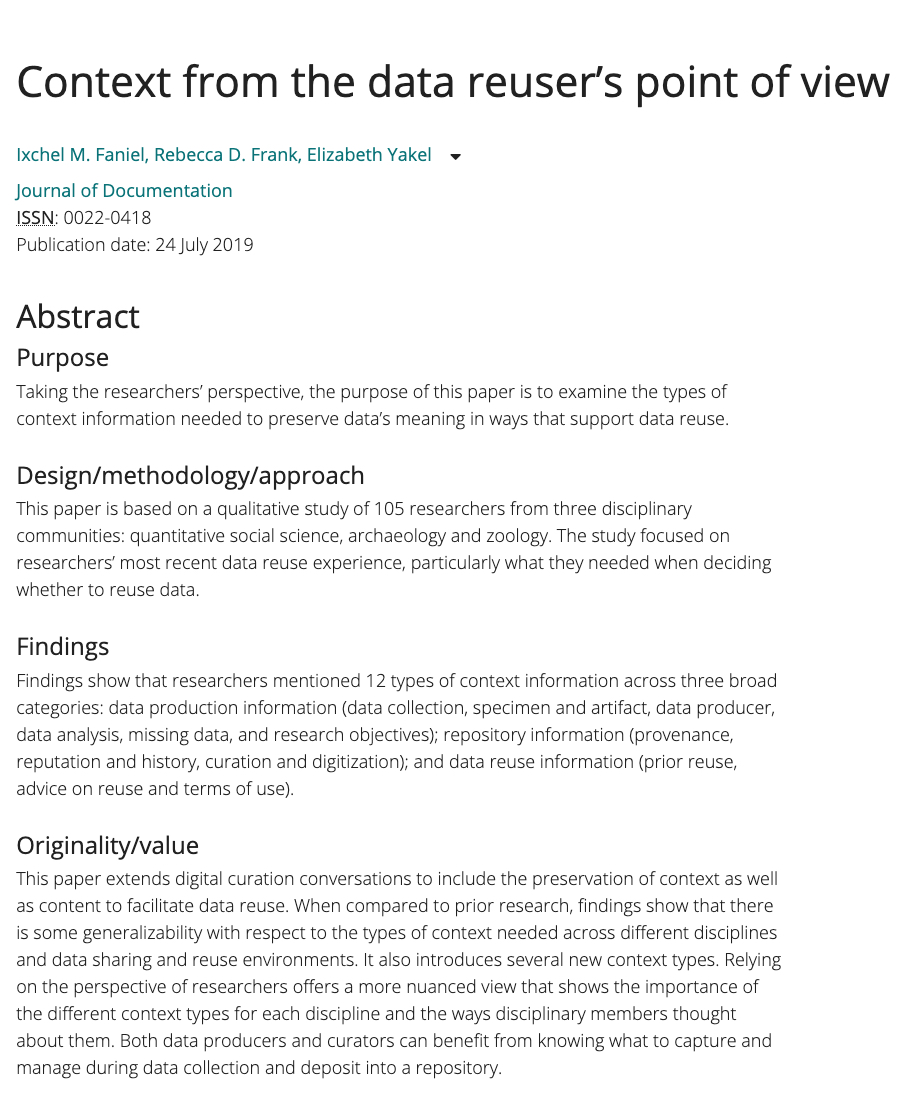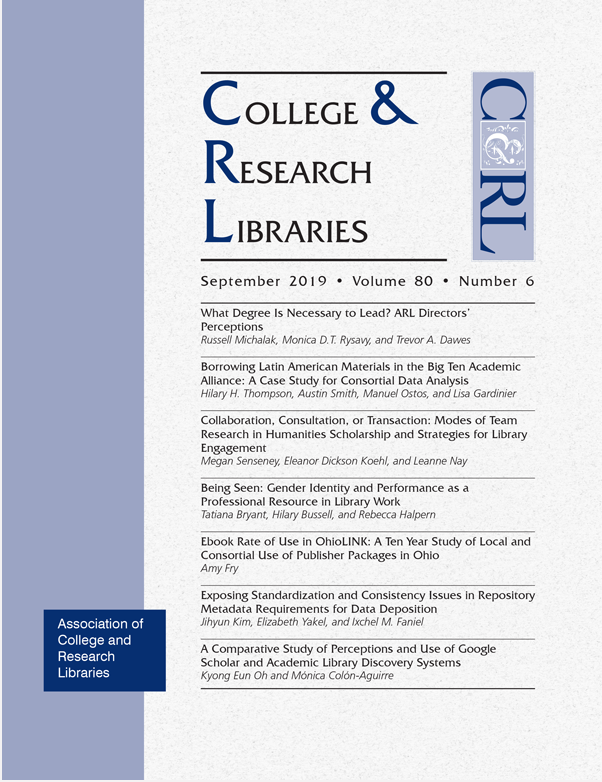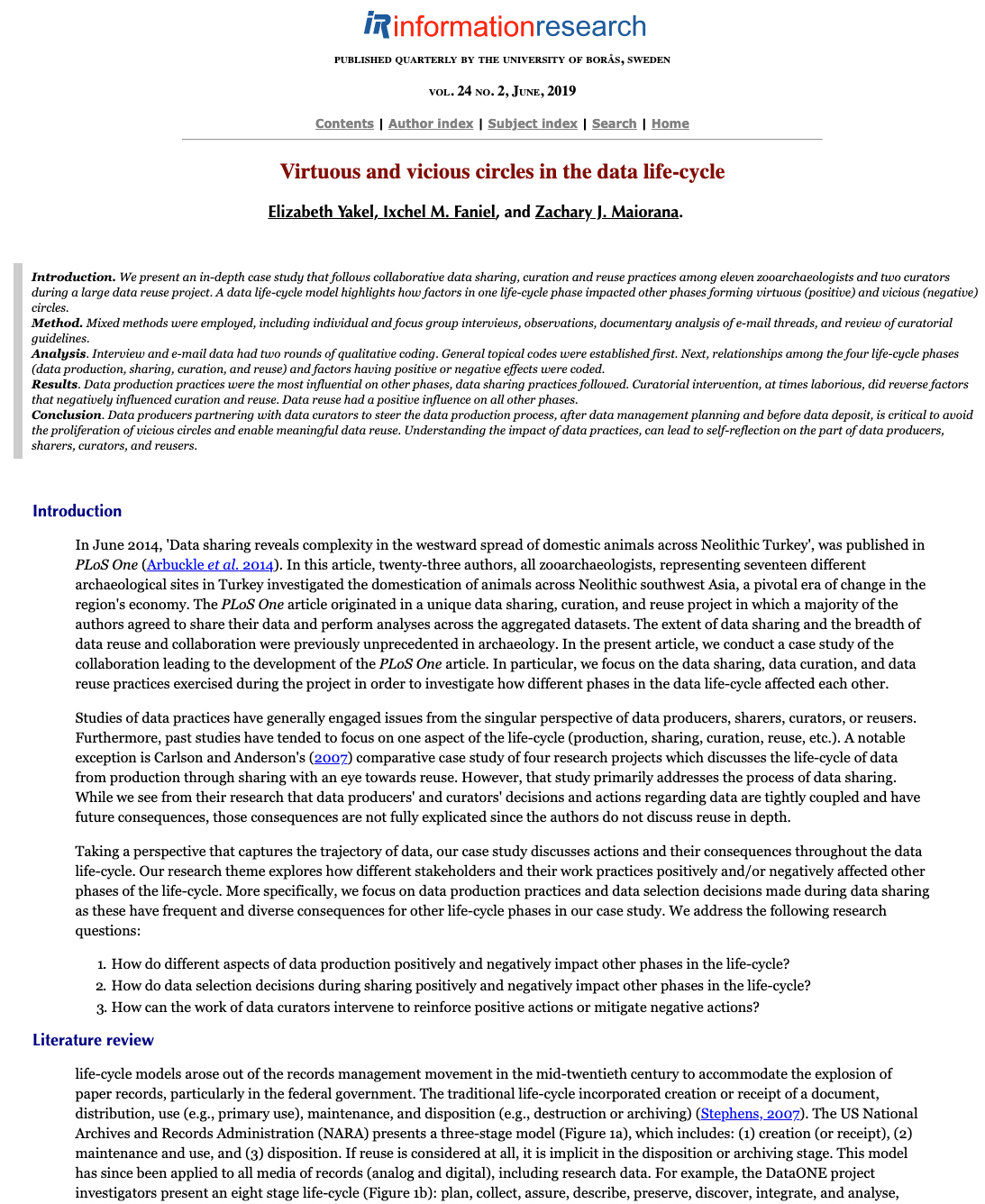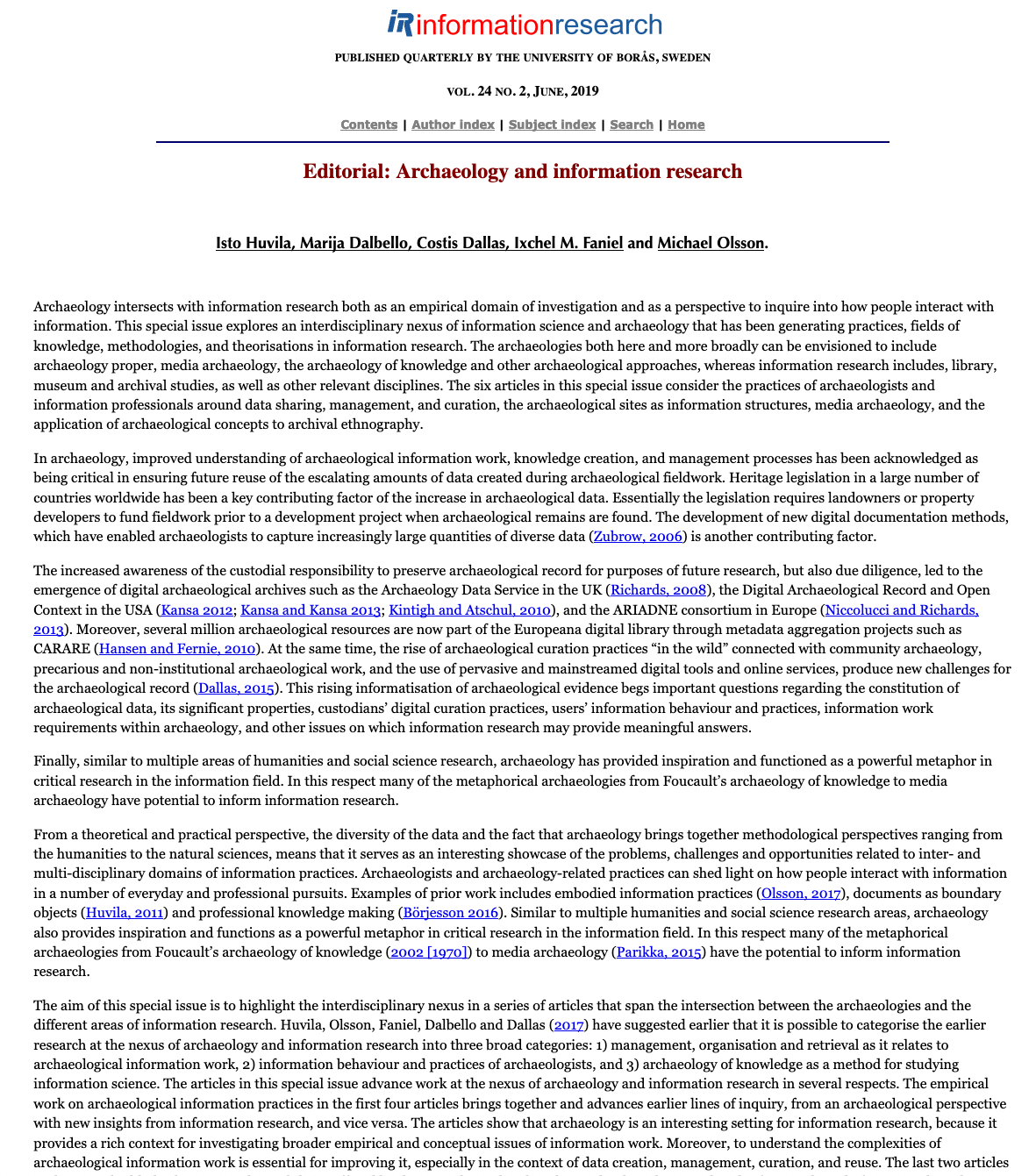User Research
Libraries are impacted by the ways in which individuals engage with technology; how they seek, access, contribute, and use information; and how and why they demonstrate these behaviors and do what they do. We're collaborating with librarians to shape their services around a set of expectations that have been influenced by consumer technologies and modern research and learning environments. By providing the library community with behavioral evidence about individuals’ perceptions, habits, and requirements, we can ensure that the design of future library services is all about the user. Our efforts are amplified by strategic partnerships and focus in these two areas:
Publications
-

Context from the Data Reuser’s Point of View
26 September 2019
Ixchel M. Faniel, Rebecca D. Frank, Elizabeth Yakel
Context is critical for data reuse, and digital curation should include both context and content preservation. Both data producers and curators benefit from expanding context categories to better determine what information is vital to capture and manage during data collection to support data reuse.
-

Exposing Standardization and Consistency Issues in Repository Metadata Requirements for Data Deposition
1 September 2019
Jihyun Kim, Elizabeth Yakel, Ixchel M. Faniel
In this article in College & Research Libraries Journal, the authors examine common and unique metadata requirements and their levels of description, determined by the data deposit forms of 20 repositories in three disciplines—archaeology, quantitative social science, and zoology.
-

Virtuous and Vicious Circles in the Data Life-cycle
2 June 2019
Elizabeth Yakel, Ixchel M. Faniel, Zachary J. Maiorana
A data life cycle model illustrates how factors in one data life cycle phase impacts other phases, forming virtuous (positive) and vicious (negative) circles. This method comprehensively studies how data producers, sharers, curators, and reusers can better collaborate across data life cycle phases.
-

Editorial: Archaeology and Information Research
1 June 2019
Isto Huvila, Marija Dalbello, Costis Dallas, Ixchel M. Faniel, Michael Olsson
This editorial provides an overview of an issue of Information Research that studies the interdisciplinary nexus of archaeology and information research. This includes shared methods of data sharing, management, and curation; archaeological sites as information structures; media archaeology; and archaeological concepts in archival ethnography.